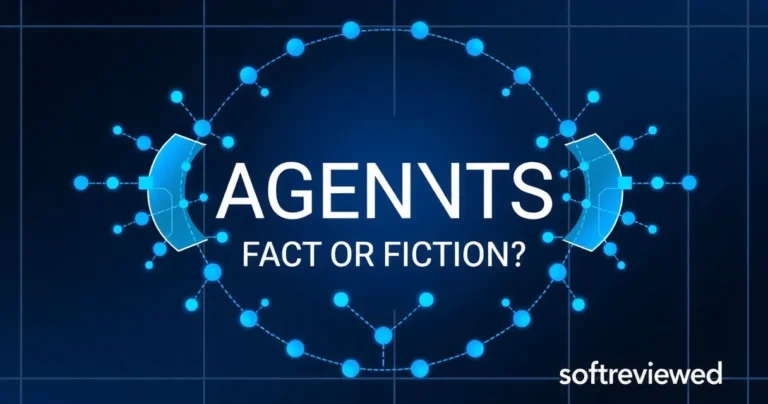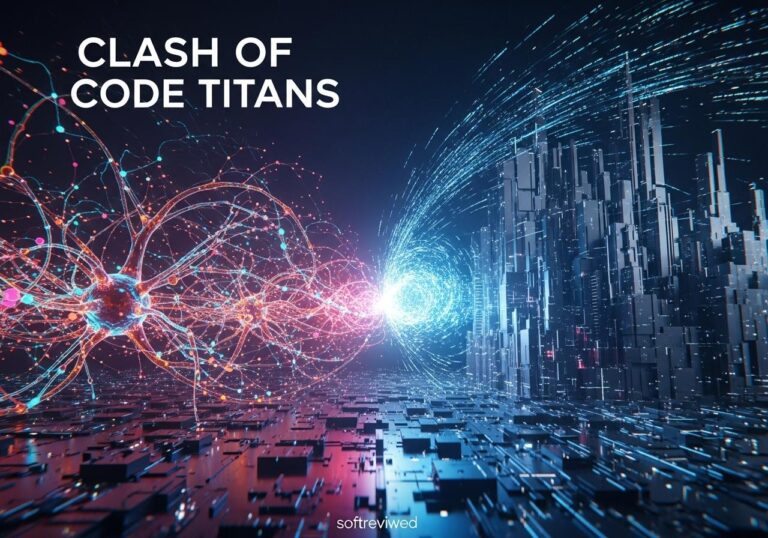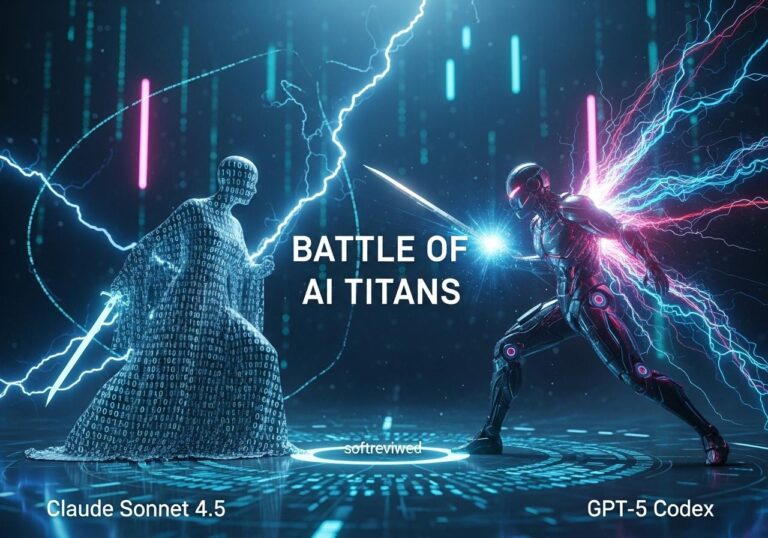The Rise of AI Agents
Revolutionizing Customer Experience
AI agents transform customer service with automated first-time call handling and personalized interactions, significantly improving satisfaction rates.
Market Growth Projection
The AI agent market is set to explode from $4.1B (2023) to $151.8B (2033), with a remarkable 43.5% CAGR.
Autonomy & Scalability
AI agents operate independently and scale effortlessly across finance, healthcare, and retail sectors, meeting growing demands.
Complex Task Management
From travel bookings to fraud detection, AI agents handle sophisticated tasks with increasing efficiency and accuracy.
Current Limitations
AI agents face challenges with unstructured scenarios and high computational demands, limiting their application scope.
Potential vs Reality Gap
Despite rapid progress, challenges in computational efficiency and ethical concerns create a gap between potential and actual performance.
The buzz around artificial intelligence (AI) is undeniable, and at the heart of this excitement are AI agents. But what exactly are these intelligent systems, and how are they shaping our world? In this article, we’ll explore the fascinating world of AI agents, from their core functionalities to their real-world applications and the challenges they present. We will delve into their capabilities, the hurdles in their development, and what the future might hold for these increasingly sophisticated systems. Get ready to discover if they're truly the next big thing or just another hyped-up technology.
What Exactly Are These AI Agents? 🤖
At its core, an AI agent is a software program that can perceive its environment, make decisions, and take actions to achieve specific goals without direct human intervention. These aren't just simple scripts; they are intelligent systems equipped with AI and machine learning (ML) to autonomously interact with their surroundings. They can collect data, analyze it, and use this data to formulate plans and execute tasks. In simple terms, an AI agent is like a virtual worker that figures out how to complete a job on its own. Think of it as a smart assistant that doesn't just follow instructions, but rather figures out the best way to get the job done.
Understanding the Structure of an AI Agent 🏗️
An AI agent typically consists of several key components that work together seamlessly:
- Perception Component: This is responsible for receiving sensory input from the environment, like data from cameras, sensors, or databases. 👁️
- Knowledge Base: This is where the agent stores and organizes information about the world, such as facts, rules, and models of the environment. 📚
- Decision-Making Component: Using AI algorithms, this component decides what action to take based on perceived inputs and its knowledge base. 🤔
- Action Execution Component: This carries out the planned actions within the environment, such as moving a robot arm or sending a message. ⚙️
- Learning Component: This allows the agent to improve its future performance based on past experiences. 🌱
These components function interactively, allowing the agent to understand, reason and act effectively within its environment.
The Many Faces of AI Agents: A Quick Tour 🎭

AI agents come in various forms, each with its own characteristics and complexity. Understanding these types helps to see how they function in different scenarios. Here’s a look at some of the key types:
Simple Reflex Agents: These agents react to stimuli using pre-defined rules. ⚡️
- They don't use past experiences.
- They are simple and efficient in well-defined tasks.
- Example: a thermostat, or a spam filter.
Model-Based Reflex Agents: These maintain an internal representation of the world and are able to use that to make decisions. 🧠
- They consider how their actions will affect their environment.
- They are more adaptive compared to simple reflex agents.
- Example: a navigation system using GPS or some basic game AI.
Goal-Based Agents: These are designed with explicit objectives in mind. 🎯
* They plan actions to reach a desired state.
* They may use search and planning algorithms to find solutions.
* Example: a chess-playing AI or a route planner.
Utility-Based Agents: Aiming to maximize a measure of performance and also achieve the goal. 🥇
- They consider trade-offs, and are able to weigh different outcomes.
- They choose actions that optimize their utility.
- Example: A financial trading AI or resource allocation AI.
Learning Agents: The most complex type that are capable of learning and adapting. 🌱
- They can modify their internal model based on experiences.
- They have a learning component that improves their future actions.
- Example: self-driving cars, recommendation systems, or a robot learning to perform a new task.
Here's a quick comparison:
| Agent Type | Memory of Past Actions? | Goal-Oriented? | Learning Ability? | Complexity |
|---|---|---|---|---|
| Simple Reflex | No | No | No | Low |
| Model-Based Reflex | Yes | No | No | Medium |
| Goal-Based | Yes | Yes | No | Medium |
| Utility-Based | Yes | Yes | No | High |
| Learning | Yes | Yes | Yes | Very High |
How Do AI Agents Actually Work? ⚙️
The functionality of AI agents generally follows a systematic process:
- Perception: They perceive their environment using sensors or software interfaces. This could be anything from camera data in a self-driving car to customer queries in a chatbot. 👁️
- Analysis: They analyze the data using machine learning and other algorithms to form a comprehensive understanding of their surroundings. 🧠
- Planning: Based on their analysis, they formulate a plan to achieve their set goal. 🎯
- Execution: They execute this plan by performing actions in the environment. ⚙️
- Learning & Adaptation: Finally, they learn and adapt from their experiences, refining their future strategies. 🌱
This continuous loop allows AI agents to become more effective over time. Think of it as a learn-plan-execute cycle which ensures that each action taken improves the next. For example, an AI agent may analyze customer data, then formulate a plan to improve engagement, execute the plan by sending customized emails, and then learn from the customer responses to refine future strategies. You can find more information about how AI agents are used in the enterprise at Salesforce's official website.
AI Agents in Action: Where Are They Now? 📍
AI agents are not just theoretical concepts; they're actively being used in various sectors, impacting how we live and work. Here are some key areas where they're making a difference:
E-commerce: Enhancing the Shopping Experience 🛍️
AI agents are revolutionizing e-commerce:
- Providing personalized recommendations.
- Processing orders.
- Tracking shipments.
- Offering customer support.
- Think of the way a shopping site suggests items similar to what you've previously viewed – that's an AI agent at work.
Customer Service: Providing Instant Support 📞
Chatbots and virtual assistants powered by AI are now commonplace:
- Handling a wide range of inquiries.
- Providing instant support.
- Resolving common issues quickly and efficiently.
- Freeing up human agents for more complex tasks.
Healthcare: Transforming Patient Care 🩺
In healthcare, AI agents are assisting:
- Patient diagnosis.
- Developing treatment plans.
- Monitoring patient's conditions.
- Even performing surgeries using robotic systems.
- They also analyze data to discover new medicines, which leads to medical advancement.
Autonomous Vehicles: Navigating Our Roads 🚗
Self-driving cars are complex AI applications:
- Using sensors, machine learning, and AI to navigate roads.
- Avoiding obstacles.
- Making real-time decisions.
- They operate in dynamic environments.
Robotics: Automating the Physical World 🦾
AI-powered robots are utilized in various sectors:
- Manufacturing, logistics, and agriculture.
- Performing repetitive or dangerous tasks.
- Increasing efficiency and productivity.
- Reducing risks to human workers.
The Hurdles in AI Agent Development 🚧
While the potential of AI agents is immense, their development faces several challenges:
Technical Complexities: The Algorithm Puzzle 🧩
- Building AI agents requires intricate algorithms and programming expertise.
- Developers piece together different tools and technologies.
- Integrating and testing these tools requires significant time and resources.
Ethical Considerations: Navigating Moral Dilemmas 🤔
- AI agents raise ethical questions, especially regarding decision-making and potential biases.
- Ensuring AI agents make fair, unbiased decisions remains challenging.
- Responsibility for AI mistakes or harm is still a significant concern.
Security Risks: Protecting Against Malicious Use 🔒
- AI agents are vulnerable to cyberattacks and misuse.
- They could be exploited for spreading misinformation or automating cyberattacks.
- Securing AI agents from such threats is crucial.
Data Dependency: The Need for Quality Information 📊
- AI agents rely on data for learning and decision-making.
- The quality of data impacts the performance.
- Biased data can result in skewed results and discriminatory behavior.
What Does Tomorrow Hold for AI Agents? 🔮
The future of AI agents is bright, with several exciting trends on the horizon.
The Rise of Hyper-Personalization: Tailoring Experiences 🎯
- AI agents are expected to become increasingly personalized.
- Adapting to individual user needs and preferences will be a priority.
- This will lead to custom content and tailored experiences.
Enhanced Multi-Agent Systems: Collaboration at Scale 🤝
- Multi-agent systems, where multiple AI agents collaborate are expected to become more common.
- These systems will enhance collaboration across fields such as finance and supply chains.
Multimodal Capabilities: Understanding Beyond Text 🗣️
- Future AI agents will seamlessly process data types such as text, voice, images, and video.
- This will enable more intuitive and natural interactions.
Ethical AI and Transparency: Building Trust 🙏
- There is a growing focus on ethical AI development.
- Ensuring transparency in AI decision-making processes is a goal.
- The aim is to build trust and integrate AI responsibly into society.
What Are the Implications of AI Agents in the Context of ANI, AGI, and ASI?
The rise of AI agents brings profound implications for society, particularly in the realms of ANI, AGI, and ASI. As advancements continue, understanding ani agi and asi differences becomes essential for navigating ethical considerations, workforce impacts, and the potential for intelligent decision-making in our future.
Wrapping it Up: The Potential and Peril of AI Agents 🎁
AI agents are rapidly evolving from simple task executors to sophisticated, autonomous decision-makers. Their potential to transform industries and enhance our lives is immense, but so are the challenges and risks they pose. As we move forward, a balanced approach that leverages their capabilities while carefully addressing ethical and security concerns will be essential for realizing their full potential. The future of AI is not just about the technology itself, but also how we choose to develop and utilize it. It's an era of great potential, but one which requires careful consideration and responsible innovation. The potential is there for them to be a transformative force, so it's essential to move forward with our eyes wide open.
Global AI Adoption Rates by Country (2024)
This chart compares AI adoption rates across different countries, highlighting the significant lead of India and China in global AI implementation.







